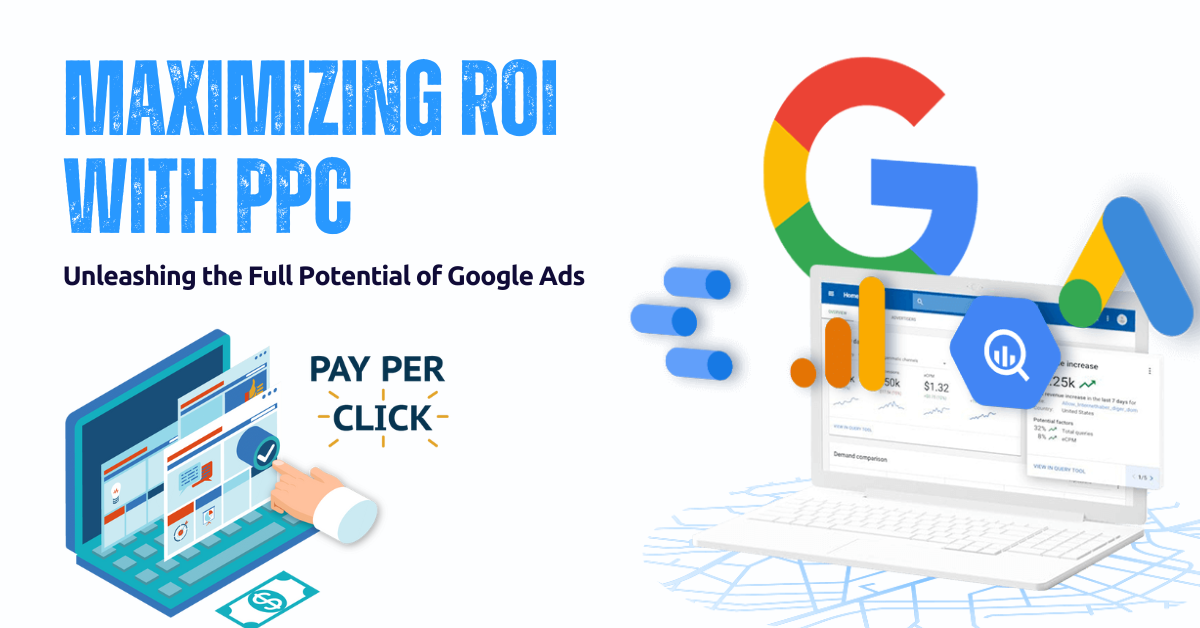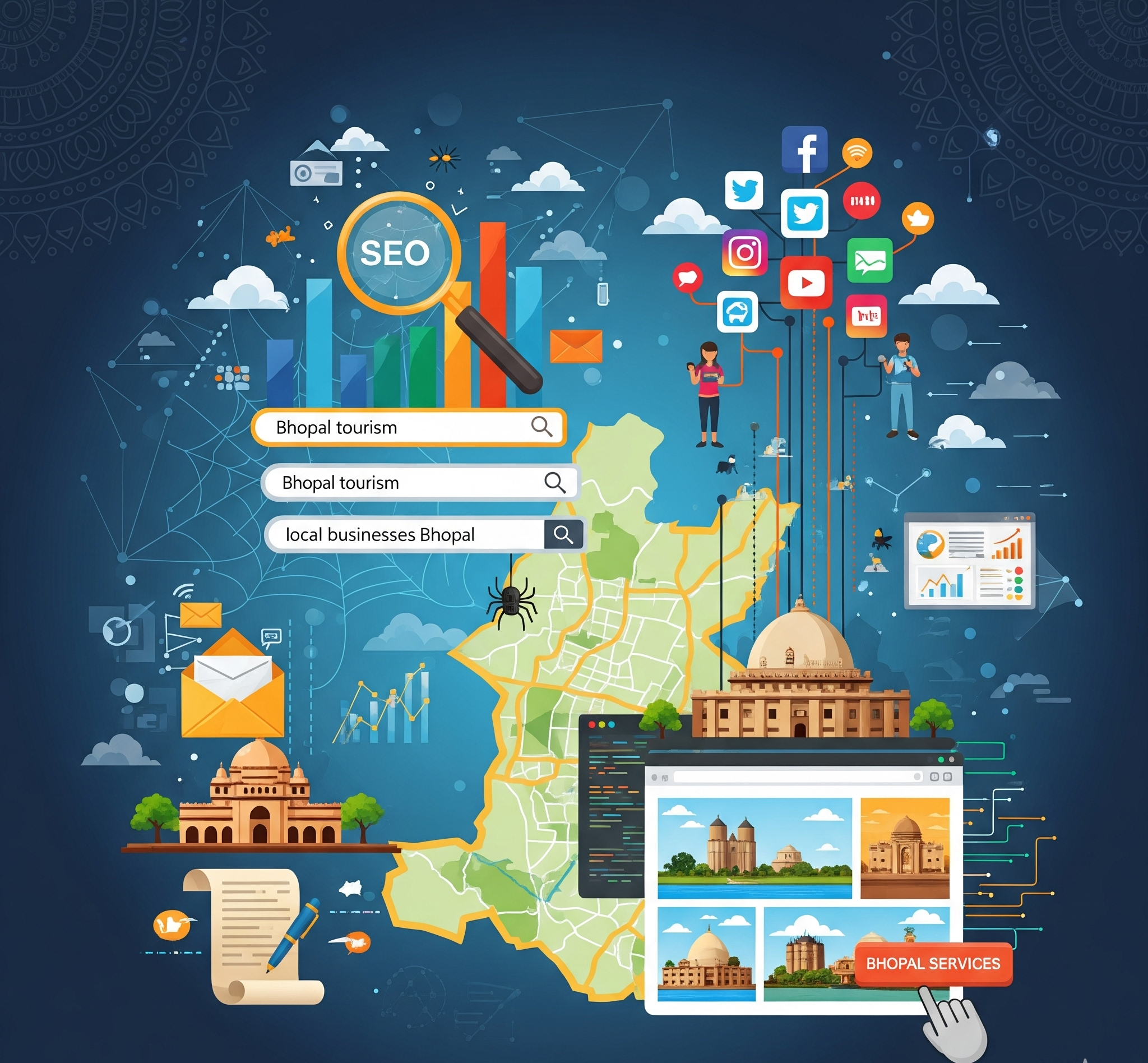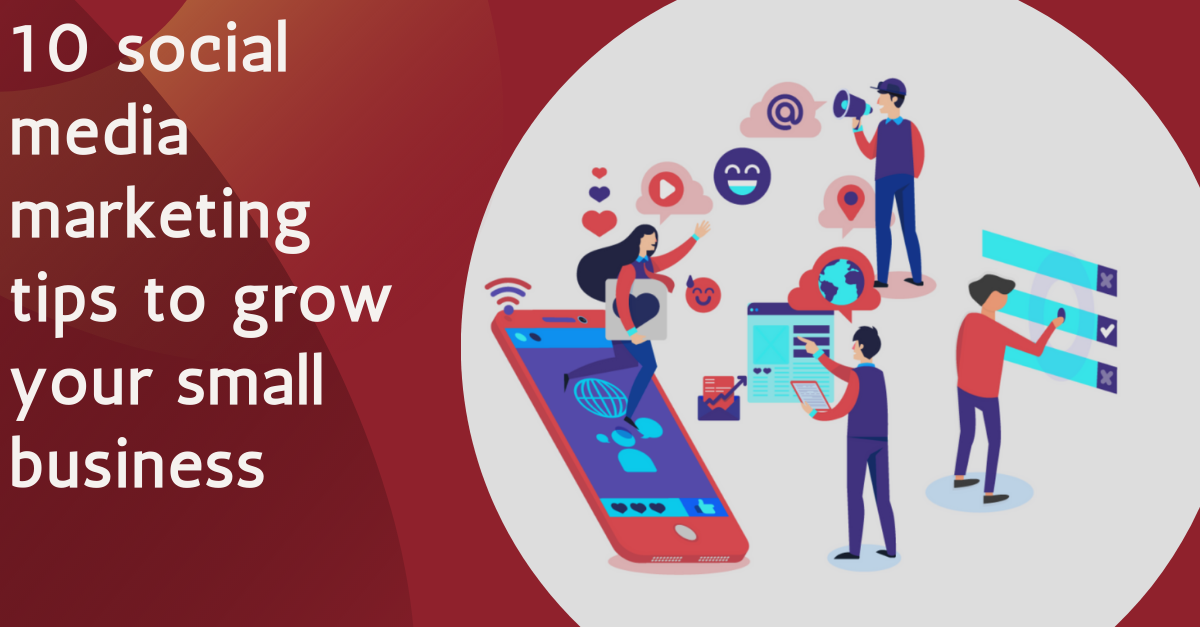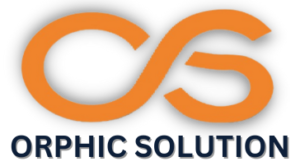Digital Marketing Tips
Maximizing ROI with Google PPC Campaigns: A Comprehensive Guide to PPC Optimization

Introduction:
Maximizing ROI with Google PPC. In the ever-evolving landscape of digital marketing, pay-per-click (PPC) advertising stands out as one of the most effective strategies for driving targeted traffic to websites and generating leads. Among the various platforms available for PPC advertising, Google PPC campaigns, powered by Google AdWords, remain a cornerstone for businesses seeking to maximize their return on investment (ROI). In this comprehensive guide, we will delve into the intricacies of Google PPC advertising and explore strategies for optimizing PPC campaigns to achieve maximum ROI.
Understanding Google PPC Advertising: Maximizing ROI with Google PPC

Google PPC advertising, also known as Google AdWords, enables businesses to display ads on Google’s search engine results pages (SERPs) and across its vast network of partner sites. These ads appear above or below organic search results and are labeled as “Ad” to distinguish them from organic listings. With Google PPC advertising, businesses bid on keywords relevant to their products or services and pay only when users click on their ads.
Google PPC Campaign Setup: Maximizing ROI with Google PPC
The first step in maximizing ROI with Google PPC campaigns is setting up a well-structured campaign. This involves:
Keyword Research: Conduct thorough keyword research to identify relevant keywords with high search volume and moderate competition. Use tools like Google Keyword Planner to discover potential keywords for your campaign.
Ad Copy Creation: Craft compelling ad copy that incorporates relevant keywords and entices users to click. Highlight unique selling points, offers, and calls-to-action to increase ad engagement.
Targeting Options: Utilize targeting options such as location targeting, device targeting, and audience targeting to reach your desired audience effectively. Refine your targeting parameters based on demographics, interests, and behavior to improve campaign performance.
Ad Extensions: Take advantage of ad extensions such as sitelinks, callouts, and structured snippets to provide additional information and improve ad visibility. Ad extensions enhance the appearance of your ads and encourage users to take action.
Budget Allocation: Set realistic budgets for your PPC campaigns based on your advertising goals and expected ROI. Monitor your budget allocation regularly and adjust as needed to optimize campaign performance.
PPC Campaign Management: Maximizing ROI with Google PPC
Once your Google PPC campaigns are live, ongoing management is essential to ensure optimal performance and ROI. Key aspects of PPC campaign management include:
Monitoring Performance: Maximizing ROI with Google PPC
Regularly monitor key performance metrics such as click-through rate (CTR), conversion rate, cost per click (CPC), and return on ad spend (ROAS). Use Google Analytics and Google Ads reports to track campaign performance and identify areas for improvement.
Ad Testing: Continuously test different ad creatives, headlines, and calls-to-action to identify which variations resonate most with your target audience. A/B testing allows you to refine your ad messaging and optimize for better performance.
Keyword Optimization: Refine your keyword list based on performance data and user search behavior. Identify high-performing keywords and allocate more budget towards them while excluding underperforming keywords to improve ROI.
Bid Management: Maximizing ROI with Google PPC
Adjust your keyword bids based on performance metrics and bidding strategies. Use automated bidding strategies like target ROAS or maximize clicks to optimize bidding and maximize ROI.
Landing Page Optimization: Ensure that your landing pages are optimized for conversions and provide a seamless user experience. Test different landing page layouts, designs, and calls-to-action to improve conversion rates and ROI.
PPC Optimization Techniques:Maximizing ROI with Google PPC
In addition to ongoing campaign management, implementing advanced optimization techniques can further enhance the performance of your Google PPC campaigns:
Ad Scheduling: Identify peak times and days when your target audience is most active and adjust your ad scheduling accordingly. By displaying ads at optimal times, you can increase visibility and maximize conversions.
Remarketing Campaigns: Maximizing ROI with Google PPC
Implement remarketing campaigns to re-engage users who have previously visited your website but did not convert. Tailor your ads to target specific audience segments and encourage them to complete their purchase or take desired actions.
Ad Placement Optimization: Maximizing ROI with Google PPC
Analyze the performance of your ads across different placements and adjust bids accordingly. Allocate more budget towards high-converting placements and exclude low-performing placements to improve ROI.
Ad Copy Optimization:Maximizing ROI with Google PPC
Continuously optimize your ad copy to improve relevancy and increase click-through rates. Experiment with different ad formats, messaging, and offers to capture users’ attention and drive engagement.
Negative Keywords: Regularly review search terms reports and add negative keywords to exclude irrelevant or low-converting search queries. Negative keywords help refine your targeting and prevent wasted ad spend on irrelevant clicks.
Conclusion:
Maximizing ROI with Google PPC campaigns requires a strategic approach encompassing campaign setup, ongoing management, and advanced optimization techniques. By conducting thorough keyword research, crafting compelling ad copy, and implementing effective targeting options, businesses can create successful PPC campaigns that drive results. Through continuous monitoring, testing, and optimization, businesses can improve campaign performance, increase conversions, and achieve maximum ROI with Google PPC advertising. With the right strategies and tools in place, businesses can harness the full potential of Google PPC campaigns to grow their online presence and drive business success.
Incorporating the exact keywords provided: Google PPC ad, Google PPC campaigns, Google PPC advertising, pay per click campaign, PPC campaign manager, Google PPC ad, Google AdWords PPC campaign, Google PPC AdWords, PPC optimization, Google PPC support.
FAQs
What is Google PPC advertising, and how does it work?
Google PPC advertising, also known as Google AdWords, allows businesses to display ads on Google’s search engine results pages (SERPs) and partner sites. Advertisers bid on keywords relevant to their products or services and pay only when users click on their ads.
How can I set up a Google PPC campaign?
Setting up a Google PPC campaign involves creating a Google Ads account, conducting keyword research, creating ad groups, writing ad copy, setting targeting options, and defining budget and bidding strategies.
What are some best practices for optimizing Google PPC campaigns?
Some best practices for optimizing Google PPC campaigns include conducting thorough keyword research, crafting compelling ad copy, targeting specific audience segments, monitoring campaign performance, testing different ad variations, and optimizing landing pages for conversions.
How can I measure the success of my Google PPC campaigns?
You can measure the success of your Google PPC campaigns by tracking key performance metrics such as click-through rate (CTR), conversion rate, cost per click (CPC), return on ad spend (ROAS), and overall ROI. Use Google Analytics and Google Ads reports to monitor campaign performance and make data-driven decisions.
What are some advanced optimization techniques for Google PPC campaigns?
Advanced optimization techniques for Google PPC campaigns include ad scheduling, remarketing campaigns, ad placement optimization, ad copy optimization, negative keyword management, and implementing advanced bidding strategies like target ROAS or maximize clicks.
How can I improve the ROI of my Google PPC campaigns?
To improve the ROI of your Google PPC campaigns, focus on optimizing ad targeting, improving ad relevance and engagement, refining bidding strategies, optimizing landing pages for conversions, and continuously monitoring and optimizing campaign performance based on data-driven insights.
Do I need to hire a PPC campaign manager to run Google PPC campaigns?
While hiring a PPC campaign manager can provide expertise and ensure optimal campaign performance, businesses can also manage Google PPC campaigns in-house by following best practices, utilizing Google Ads tools and resources, and staying informed about industry trends and updates.
What support options are available for Google PPC advertisers?
Google offers various support options for PPC advertisers, including online resources such as the Google Ads Help Center, community forums, and tutorials. Additionally, businesses can access personalized support from Google Ads specialists through phone, email, or chat support channels.
Blog
7 Proven Techniques of the Best Digital Marketing Company in Bhopal

Today, there is no question that digital marketing is not a choice but rather a must. Whether you run a small local shop or a big national company, your online presence is crucial.
The top digital marketing agencies in Bhopal apply a combination of tactics including seo, social media marketing, web development and paid advertising in order to greatly grow your business.
In this post, we highlight 7 key strategies top digital agencies implement to drive traffic, gain leads and sales for local businesses in Bhopal.

Importance of Digital Marketing for in Bhopal Businesses
Bhopal is an evolving market and it’s completely dependent on internet surfing to let people make purchases. Whether it’s restaurant meals or real estate, customers go online for information before making purchases.
A good marketing agency in Bhopal can assist your business:
SEO and Social Media Optimization for more online visibility
Generate leads with targeted PPC ads Create qualified leads through PPC ads that are targeted to promote your firm for the services important to business owners.
Establish trust and authority through epic content
Personalize campaigns for a local market, so that your marketing is more relevant
Example:
A local restaurant making smart choices online can rank in “near me” searches, drive foot traffic and ramp up its online orders thanks to Google and Instagram ads.
Develop an Effective Digital Marketing Strategy
Every winning campaign begins with a detailed, actionable plan.
Your strategy should include:
Market research and competitor analysis
Knowing your audience and their needs
Selecting appropriate marketing channels (SEO, social media, PPC, etc.
Establishing Goals and KPIs to define success
Pro Tip:
Begin with organic marketing including SEO and social media. When you get the ball rolling, invest in some PPC advertising for quicker results.
Smart SEO with Latest Updates
SEO is the lifeblood of digital expansion. One of the best SEO companies in Bhopal has been working on following three factors.
On-page SEO: It relates to all factors on your own website which can be optimised for search engines like google, including content, meta tags and internal hyperlink building.
Off-page SEO: Generating quality backlinks and citations for local business
Technical SEO: Increasing speed, mobile responsiveness and site structure.
The ability of your site to evolve and avoid getting penalised is determined by its keep-it-fresh score, not the arbitrary date you published it.
Example Keyword Use:
“Our team stays up to date with the most recent SEO changes to help our clients rank and maintain their rankings over time.”
High-Performing Website Design & Development
Your website is essentially your digital shop front. Slow or poorly designed, potential customers will go elsewhere.
What A web design company in Bhopal does?
Mobile-friendly, responsive designs
Pages load in less than 3 seconds
SEO-friendly structure and clean coding
Clean and tidy navigation with strong CTA buttons
A web development company in Bhopal, on the other hand, makes sure your website is secure and scalable along with incorporated analytics to track well.
Internal Linking Tip:
Link this to your web development service page for stronger SEO.
Social Media Marketing That Engages
Social media isn’t just about posting images-it’s also a place to connect with your audience.
An effective social media marketing strategy consists of:
Interactive material such as reels, videos and infographics
Consistent posting schedules
Utilize local hashtags and trending topics.
Creating paid advertisements for targeted exposure
Example:
A Bhopal-based apparel brand saw sales take a 45% jump after posting Instagram ads and tied up with local influencers.
Focused PPC Campaigns for Immediate Effects
PPC advertising is all about getting immediate exposure and instant results when done right.
The top agencies use to advertise by PPC:
Google Ads for search-driven traffic
Facebook & Instagram Ads for local targeting
LinkedIn Ads for B2B businesses
Benefits of PPC:
Instant traffic and visibility
Better audience targeting
Easy tracking and measurable ROI
Internal Linking Tip:
For more details, link to your PPC service page.
Tactic 6 – Always Blog And Create Content Old but new, this takes people away.
Your content is what helps you build that trust and get established as an authority in your niche.
Top agencies focus on:
Blogs that highlight response to customer questions on a weekly basis
Local seo content for bhopal audiences. 2019 hsn code list city wise searchable pdf and excel file.
Educational resources to nurture leads
Example Blog Topics:
24 SEO Updates Every Business Owner Should Know
Why to Join Web Development Classes in Bhopal? Opportunities on Your Career”
Top Small Business Digital Marketing Trends
Follow Data to Analyze and Improve
Digital marketing is not a one-time job. You must monitor your progress and optimize incessantly.
You can do this through tools such as Google Analytics and Search Console:
Monitor traffic and conversions
Identify underperforming pages
Modify tactics according to the facts
Pro Tip:
Weekly review of analytics with small, steady changes.
FAQs
Q1. What would you need a digital marketing company in Bhopal?
Local agencies simply know the market, competition, how customers behave better and that gives you a definite edge.
Q2. How frequently should I be updating my SEO strategy?
No less than 4 times per year or after significant Google algorithm changes.
Q3. What is more effective: SEO or PPC?
SEO is for sustainable growth, PPC is providing instant results. A mix of both is ideal.
Q4. What are the best in digital marketing topics to study?
SEO, social, PPC, content and analytics.
Conclusion & Call to Action
Developing an effective internet presence is hard – it takes a lot of time, consistency and knowhow. With these seven strategies, your business can differentiate itself and grow at a faster pace than that of the competition.
Final Tip:
Collaborate with a reliable digital marketing agency in Bhopal to receive professional advice and measurable results.
Ready to grow your business?
Reach out to Orphic Solution now for a free SEO analysis and consultation.
Blog
Top 10 Social Media Marketing Tips to Grow Your Brand

Growing your brand on social media can seem challenging, but with the right strategies, it can be a rewarding experience. Here are ten effective social media tips to help you boost brand awareness and engagement.
1. Define Your Goals
The first step in social media marketing strategies is to define your goals. Are you looking to grow your brand on social media, increase engagement, or drive sales? Clear goals will guide your content and strategy.
2. Know Your Audience
Understanding your target audience is crucial. Use social media analytics tools to learn more about your followers’ demographics, interests, and behaviors. This knowledge will help you create content that resonates and boosts brand awareness on social media.
3. Create Engaging Content
Content is king in social media marketing. Focus on creating high-quality, engaging content that adds value to your audience. Use a mix of videos, images, and articles to keep your feed interesting. Effective social media tips include using storytelling to connect with your audience emotionally.
4. Use Hashtags Wisely
Hashtags can significantly increase your reach on platforms like Instagram and Twitter. Research and use relevant hashtags to get your posts seen by a larger audience. Social media growth hacks often include using trending and niche-specific hashtags.
5. Post Consistently
Consistency is key in social media marketing strategies. Create a content calendar to schedule your posts in advance. Regular posting keeps your audience engaged and helps in increasing social media followers.
6. Engage with Your Audience
Interaction is essential for building a loyal community. Respond to comments, messages, and mentions promptly. Social media engagement tips include running polls, Q&A sessions, and live videos to interact directly with your followers.
7. Collaborate with Influencers
Influencer marketing can give your brand a significant boost. Collaborate with influencers who align with your brand values and have a substantial following. This can help in growing your brand on social media and reaching new audiences.
8. Leverage Paid Advertising
Social media advertising tips suggest using paid ads to reach a broader audience. Platforms like Facebook and Instagram offer detailed targeting options to ensure your ads reach the right people. Invest in social media ads to boost brand awareness and drive traffic to your site.
9. Analyze and Adjust
Regularly analyze your social media performance using tools like Google Analytics and native platform insights. Understanding what works and what doesn’t is crucial for refining your social media marketing strategies. Adjust your tactics based on your findings to improve your results.
10. Stay Updated with Trends
Social media is constantly evolving. Stay updated with the latest trends and platform updates to keep your strategy relevant. Follow industry blogs and influencers to get the latest social media growth hacks and effective social media tips.
Conclusion
Implementing these social media best practices will help you grow your brand on social media. Remember, the key is to be consistent, engage with your audience, and continuously refine your strategy based on data and trends. Happy marketing!
By incorporating these strategies, you’ll be well on your way to mastering social media marketing and seeing tangible growth for your brand.
Blog
10 Effective Ways to Use Analytics to Drive Marketing Decisions
In today’s competitive landscape, data-driven marketing is essential for making informed decisions and optimizing campaigns. Utilizing marketing analytics tools can provide valuable insights and help you improve your strategies. Here are ten effective ways to use analytics to drive your marketing decisions.
1. Leverage Customer Insights

Understanding your customers is crucial for crafting targeted marketing campaigns. Analytics tools can provide deep customer insights, such as demographics, behavior patterns, and preferences. By analyzing this data, you can tailor your messages and offers to meet their needs, enhancing engagement and satisfaction.
2. Optimize Conversion Rates
Conversion rate optimization (CRO) is about increasing the percentage of visitors who complete a desired action on your website. Use analytics to identify bottlenecks in your conversion funnel and test different elements to see what works best. Tools like Google Analytics offer insights into user behavior, helping you make data-driven decisions to improve conversions.
3. Utilize Google Analytics Tips
Google Analytics is a powerful tool for tracking and analyzing website traffic. To get the most out of it, follow some essential Google Analytics tips, such as setting up goals, using custom reports, and analyzing user flow. These practices can help you understand how visitors interact with your site and identify areas for improvement.
4. Conduct In-Depth Data Analysis in Marketing
Performing thorough data analysis in marketing allows you to uncover trends, patterns, and insights that can inform your strategy. Use marketing analytics tools to collect and analyze data from various sources, such as social media, email campaigns, and website traffic. This comprehensive approach enables you to make informed decisions based on real data.
5. Track Marketing Performance Metrics
Tracking marketing performance metrics is essential for measuring the success of your campaigns. Key metrics include click-through rates (CTR), conversion rates, and customer acquisition costs. By regularly monitoring these metrics, you can identify what’s working and what needs adjustment, ensuring your campaigns are effective and efficient.
6. Implement Audience Segmentation
Audience segmentation involves dividing your target audience into distinct groups based on specific criteria, such as demographics, behavior, or preferences. Use analytics to identify these segments and tailor your marketing efforts to each group. This approach can lead to more personalized and relevant campaigns, improving engagement and conversion rates.
7. Focus on ROI Tracking
Return on investment (ROI) tracking is critical for understanding the financial impact of your marketing efforts. Use analytics tools to measure the ROI of different campaigns and channels. This information helps you allocate resources more effectively and focus on strategies that deliver the highest returns.
8. Utilize Predictive Analytics in Marketing
Predictive analytics in marketing involves using historical data and machine learning algorithms to forecast future trends and behaviors. This approach can help you anticipate customer needs, optimize inventory, and plan marketing campaigns more effectively. By leveraging predictive analytics, you can stay ahead of the competition and make proactive decisions.
9. Enhance Marketing Campaigns with A/B Testing
A/B testing is a method of comparing two versions of a marketing asset to see which one performs better. Use analytics to track the performance of different elements, such as headlines, images, or call-to-action buttons. This data-driven approach allows you to make informed decisions about what works best for your audience.
10. Integrate Data from Multiple Sources
To get a complete picture of your marketing performance, integrate data from various sources, such as social media, email marketing, and web analytics. Marketing analytics tools can help you consolidate this data and provide a holistic view of your campaigns. This comprehensive approach enables you to make more informed decisions and optimize your overall strategy.
By implementing these ten effective ways to use analytics, you can drive better marketing decisions, optimize your campaigns, and achieve greater success. Embrace data-driven marketing and leverage the power of marketing analytics tools to stay ahead in the competitive landscape.






